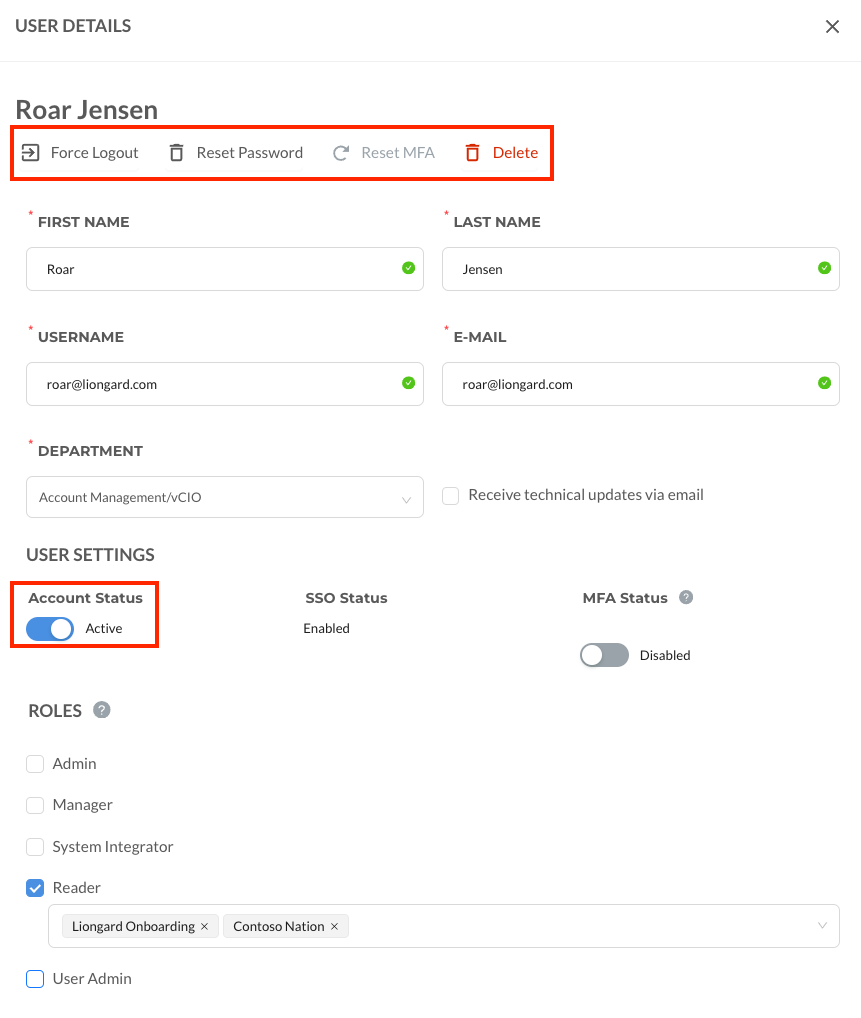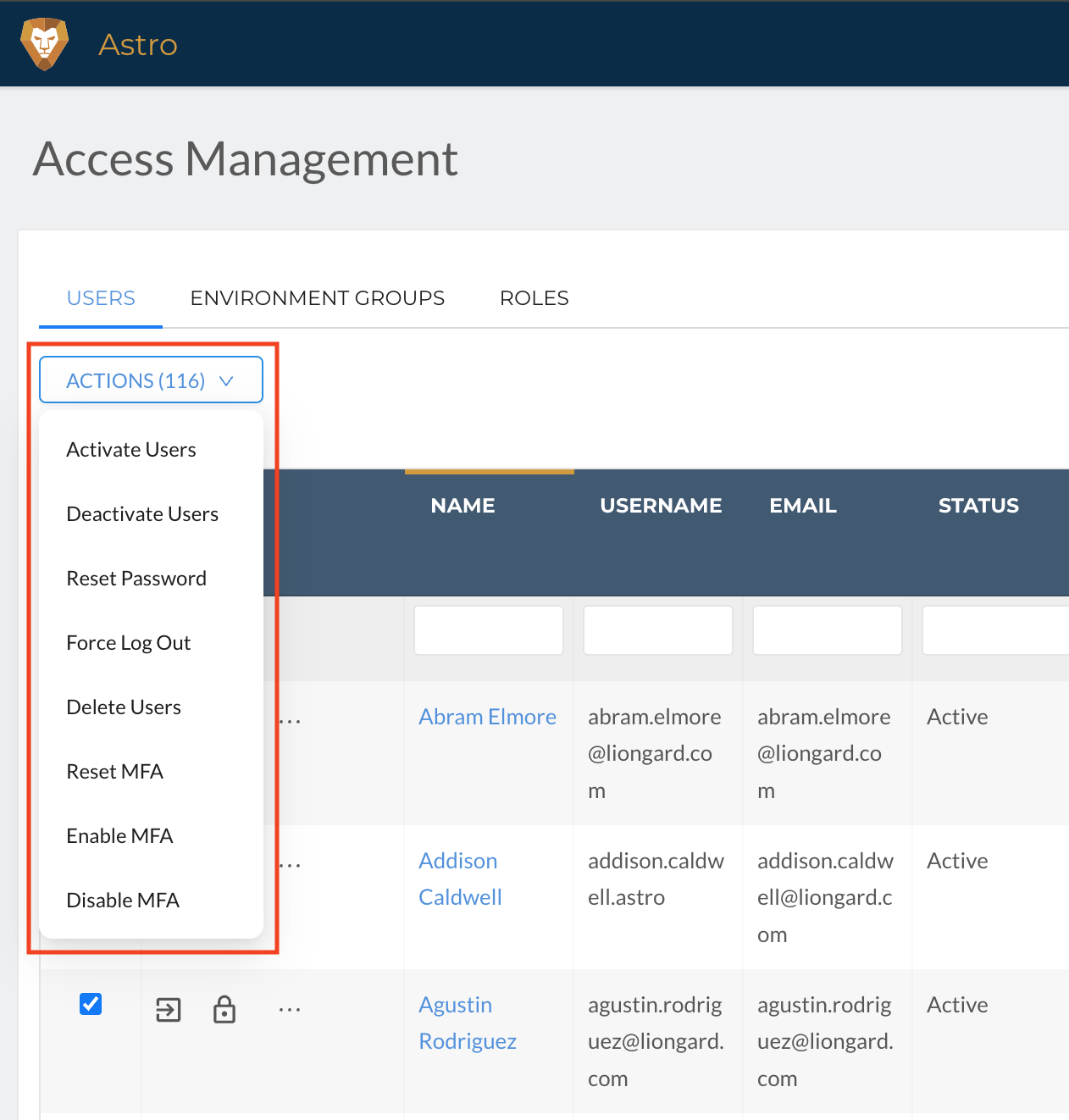User Permission Roles and Access Management
Overview
In this document, we will provide you with an overview of Liongard's access management best practices, user permission roles, and user maintenance:
- Liongard User Permission Roles
- How to Add a User in Liongard
- Enforcing Global Multi-factor Authentication (MFA)
- Individual User Maintenance
- Bulk User Maintenance
Liongard User Permission Roles
Below is an overview of the available roles for Liongards users. Please note that two applicable environment scopes are indicated for the roles: global and configurable.
Global: Access to all environments within the entire platform
Configurable: Access only to the environments and/or environment groups defined for the user
Admin - Environment Scope: Global
- Full read/write access to the entire platform and all features
System Integration - Environment Scope: Global
- Read/write access to agents, inspectors, and integrations
- Read access to environments, actionable alerts, metrics, and reports
- Restricted access to user management and company setting
Manager - Environment Scope: Configurable
- Read/write access to agents, inspectors, environments, actionable alerts, metrics, and reports for specified environments
- Read access to user management
- Restricted access to integrations and company settings
Reader - Environment Scope: Configurable
- Read access to agents, inspectors, environments, actionable alerts, metrics, and user management.
- Read access to reports. May add and edit reports for environments they have access to.
- Restricted access to integrations and company settings.
User Admin - Environment Scope: None
- Read/write access to user management.
- Restricted access to all other platform features
How to Add a User in Liongard
Follow the steps below to add a new User in Liongard.
- In Liongard, navigate to Admin > Users > Users > Select Add User
- Fill in the following fields:
- First Name: New user's first name
- Last Name: New user's last name
- Username: Create a username for the new user
- E-Mail: New user's E-Mail address
- Department: Select the most relevant Department for this user
- Receive Technical Updates via Email?: Toggle on if you would like this user to receive emails from Liongard based on his/her Department
- Two-Factor Authentication: Select if you would like the new user to use Two-Factor Authentication to access their Liongard account. This is a recommended best practice and can be turned on globally as indicated in the section above
- Roles Select the roles you would like this user to be a member of. Please refer to the previous section on Liongard User Permission Roles for guidance.
- Select Save
This user will receive an email from [email protected] to access their new account.
Environment GroupsYou may assign environment(s) or Environment Groups to the Manager and Reader roles.
Environment Groups in Liongard allow you to customize access control into logical groups, streamlining access management. You may create different Environment Groups based on departments, projects, or geographical locations and assign users to these groups accordingly.
Click here for more information on configuring and managing Environment Groups.
Enforcing Global Multi-factor Authentication (MFA)
To enforce MFA globally, navigate to Your Username > Company Settings > Security > Multi-Factor Authentication

Individual User Maintenance
User Maintenance options can be found by clicking an individual username on the Users tab of the Access Management page. On the User Details page, the following options are available:
-
Force Logout: Selecting this button will immediately log this user out of their Liongard instance
-
Reset Password: Use to reset the user's password
-
Reset MFA: This will reset the user's current MFA method, and they will be prompted to set it up again upon the next log-in attempt
-
Delete: Use to remove the user account
-
Account Status: Use to disable a user account temporarily

Bulk User Maintenance
Many user maintenance functions can be handled in bulk on the Users tab of the Access Management page.
Using the bulk selector and the Actions dropdown menu, users can be activated, deactivated, and their passwords reset. They can also be forced to log out, delete, and reset MFA.

Updated 5 months ago
